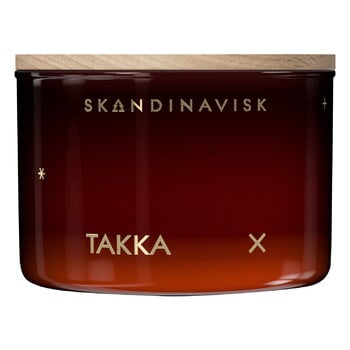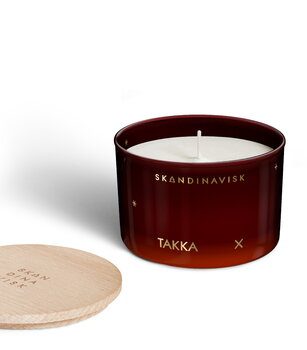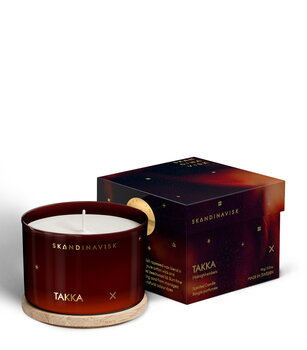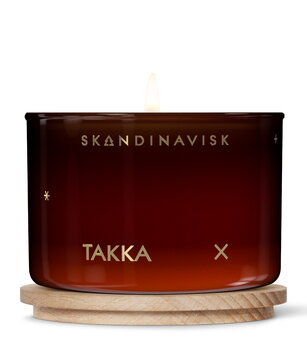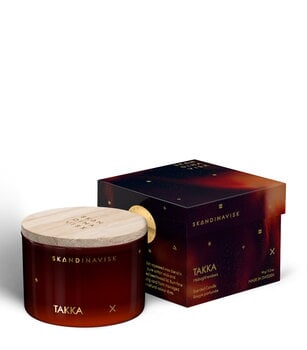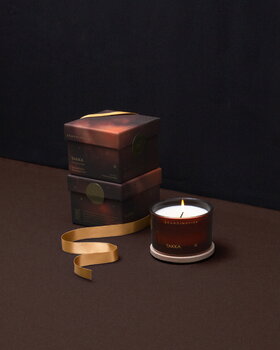Skandinavisk's scented candle Takka a scent of pine, burning hay and wood, raw wool and spicy rolled tobacco. The smell reminds you of cozy darkening evenings by the fireplace, as the name of the candle suggests: takka means "fireplace" in Finnish. Delivered in a beautiful gift box, the candle has a burn time of approximately 20 hours.
Skandinavisk's scented candles feature unique fragrances inspired by the nature, seasons, cities, and traditions of Scandinavia. The hand-poured candle comes in an attractive, dishwasher-proof glass votive which can be re-used as a glass jar or tealight holder. The candle wax is made using sustainably sourced, Swedish non-GMO rapeseed oil and blended to burn slowly and evenly with no harmful emissions. Skandinavisk's scented candles are lovely decorative items and a delight for many senses.
